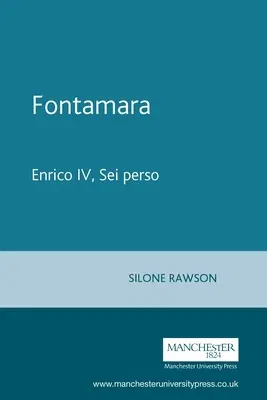Silone Rawson
(Author)Fontamara: Enrico IV, SEI PersoPaperback, 1 May 1977

Qty
1
Turbo
Ships in 2 - 3 days
Only 1 left
Free Delivery
Cash on Delivery
15 Days
Free Returns
Secure Checkout

Part of Series
Italian Texts
Print Length
281 pages
Language
English
Publisher
Manchester University Press
Date Published
1 May 1977
ISBN-10
0719006627
ISBN-13
9780719006623
Description
Product Details
Author:
Book Format:
Paperback
Country of Origin:
US
Date Published:
1 May 1977
Dimensions:
18.62 x
12.52 x
2.57 cm
Genre:
Italy
ISBN-10:
0719006627
ISBN-13:
9780719006623
Language:
English
Location:
Manchester
Pages:
281
Publisher:
Series:
Weight:
299.37 gm